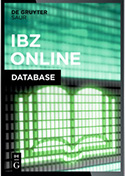Approach to The Theater of the Oppressed by Augusto Boal P (First part). Resonances of voluntary servitude according to Étienne de La Boétie
Abstract
This essay is part of a broader investigation that aims to make a critical approach to Augusto Boal's Theater of the Oppressed with the aim of expanding the conceptualization of theatrical praxis, a discipline that we have been building for several years. In this initial work we have been concerned with the meaning of two words: 'people' and 'oppressed' in the texts of the Brazilian master. For this, we have found it necessary to carry out a kind of genealogy in order to guide resonances of other authors in the Boalian proposal. In this case, we have focused on approaching the Discourse on voluntary servitude or Contra Uno (circa 1548) by Étienne de La Boétie. We try to make a reading of the Discourse from psychoanalytic premises and from the Lacanian left to clear some hypotheses capable of acting as a guide for future research, which will be focused on a selection of texts and authors whose relevance in the Theater of the Oppressed cannot be ignored.Downloads
Los autores/as que publiquen en esta revista aceptan las siguientes condiciones:
-
Los autores/as conservan los derechos de autor y ceden a la revista el derecho de la primera publicación, con el trabajo registrado con Licencia Creative Commons Atribución-NoComercial-CompartirIgual 4.0 Internacional, que permite a terceros utilizar lo publicado siempre que mencionen la autoría del trabajo y a la primera publicación en esta revista.
-
Los autores/as pueden realizar otros acuerdos contractuales independientes y adicionales para la distribución no exclusiva de la versión del artículo publicado en esta revista (p. ej., incluirlo en un repositorio institucional o publicarlo en un libro) siempre que indiquen claramente que el trabajo se publicó por primera vez en esta revista.
-
Se permite y recomienda a los autores/as a publicar su trabajo en Internet (por ejemplo en páginas institucionales o personales).











